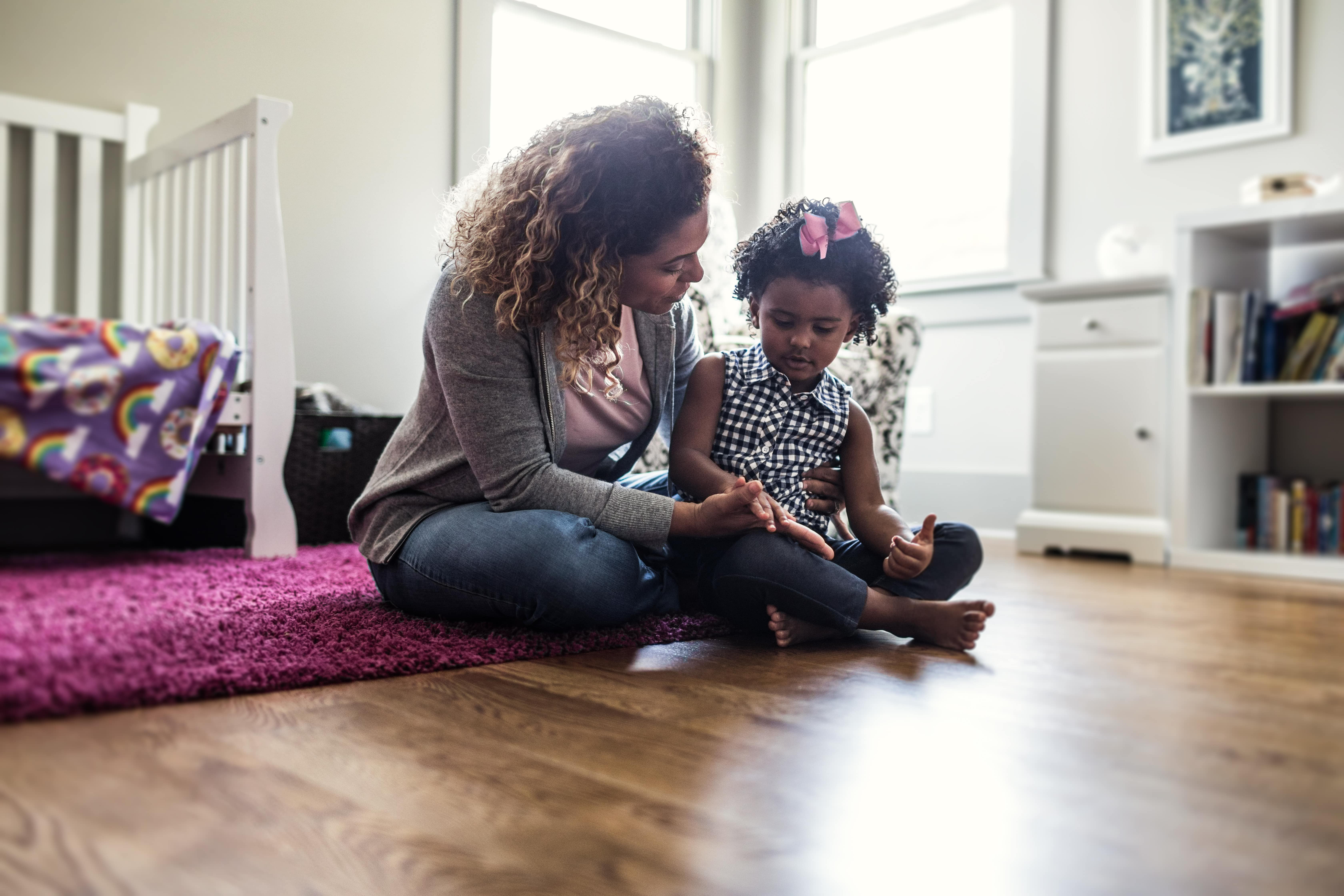Nail biting, hair pulling and skin picking – what to do if you spot the signs of trichotillomania in your child
When is your child’s hair twiddling or skin picking a sign of something bigger? A family psychotherapist explains


Parenting advice, hot topics, best buys and family finance tips delivered straight to your inbox.
You are now subscribed
Your newsletter sign-up was successful
Noticing that your child is pulling their hair, skin picking and biting their fingernails? There are many harmless reasons for this (boredom or wanting extra stimulation, for example), but these characteristics could also be a sign of something bigger.
In most cases, kids grow out of these sorts of behaviours, and they’re a very common part of the child development stages when they’re aged one to five, but some of these habits can become concerning and problematic, and may be a sign of trichotillomania, leading to a negative impact on children’s mental health.
To help parents understand more, Fiona Yassin, family psychotherapist and founder and clinical director of The Wave Clinic, shares what parents and carers should look out for and explains what to do if they notice signs and symptoms in their child.
What is trichotillomania?
Trichotillomania is a disorder that usually begins in childhood and describes a whole range of skin pulling, picking and other harming behaviours. In children, trichotillomania may appear as self-soothing habits in the first instance, such as thumb sucking or twiddling hair, which may even be seen as ‘cute’ and encouraged by families.
"Hair pulling, skin picking and nail biting is common amongst children and young people, and most will drop the habit as they get older," Fiona explains. "The warning signs are when the behaviours – such as hair pulling and skin picking – become more frequent, the person feels relief from their anxiety symptoms or discomfort after engaging in the behaviour and the person needs intervention to stop them engaging in the behaviour. It’s important to understand that everyone's experience of trichotillomania is different."
"Thumb sucking or twiddling hair may even be seen as ‘cute’ and encouraged by families."
Fiona Yassin, family psychotherapist
What triggers trichotillomania?
A trichotillomania diagnosis is very highly correlated with anxiety, which is very highly correlated with depression. Stressful situations and emotional distress can be triggers for trichotillomania, and the disorder often brings about feelings of release, relief and happiness in response to these stressful events.
Fiona says: “People with trichotillomania often have underlying mental health conditions such as obsessive-compulsive disorder (OCD), depression and anxiety. As trichotillomania sits under the umbrella of anxiety disorders, it often appears as an early behaviour in young people who go on to develop quite problematic and severe eating disorders and OCD-related behaviours. Ultimately, trichotillomania plays into a complicated pattern of anxiety.”
Parenting advice, hot topics, best buys and family finance tips delivered straight to your inbox.
What to do if you think your child has trichotillomania
Fiona explains that the single most important aspect of care is acknowledging the distress, shame and pain in young people. A safe and supportive space is essential in creating a healing environment.
She says: “Trichotillomania behaviours are happening because a child or young person is internalising the stress and pressure of external events. Take note of when repetitive behaviours happen – do the behaviours happen before school, before tests or exams or when they are going to a friend’s for dinner?
“It’s essential that parents are gentle in their approach to a conversation about trichotillomania. Instead of accusatory language that attacks the action and reinforces the shame behaviour – such as ‘stop biting your nails that’s disgusting’ – ask how the child or young person is feeling, like: 'I notice you’re moving your hands around a lot, I’m wondering if you’re feeling anxious or nervous right now?’."

Mother speaking to daughter on bedroom floor
Can therapy help with trichotillomania?
Treatment plans and self-help strategies should help young people to reduce or manage urges, feelings and cognitions. Providing young people with other behaviours to occupy hands and distraction techniques is a great first line behavioural intervention.
“It’s essential young people get treatment for their anxiety, discomfort and dysregulation as opposed to treating just the behaviour," Fiona states.
"Young people are often given topical applications, like a horrible-tasting nail varnish which would make it unpleasant to bite nails and fingers, but this only prevents the final action in the chain of behaviours and fails to tackle the source of the problem.
“It’s important for parents to know that they are not alone - there is a lot of help out there for Trichotillomania. Finding the right therapist who has experience and knowledge of trichotillomania is more important than finding the right therapy.”
A mental health professional may suggest therapies such as Dialectical Behaviour Therapy (DBT), Cognitive Behavioural Therapy (CBT), Eye Movement Desensitisation and Reprocessing (EMDR) to treat the original trauma and Habit Reversal Therapy. Young people may also find it helpful to practise coping strategies such as meditation and mindfulness, and grounding techniques such as light source visualisation.

Fiona Yassin is the founder and international clinical director at, The Wave Clinic. A child, adolescent and family psychotherapist, she is an expert in the treatment of Borderline Personality Disorder (BPD) and a specialist in eating disorders. Fiona is a complex trauma specialist and is clinically trained in Eye Movement Desensitization and Reprocessing (EMDR) and Mentalization-Based Therapy (MBT).

From building healthy family relationships to self-care tips for mums and parenting trends - Daniella also covers postnatal workouts and exercises for kids. After gaining a Print Journalism BA Hons degree and NCTJ Diploma in Journalism at Nottingham Trent University, Daniella started writing for Health & Wellbeing and co-hosted the Walk to Wellbeing podcast. She has also written for Stylist, Natural Health, The Sun UK and Fit & Well. In her free time, Daniella loves to travel, try out new fitness classes and cook for family and friends.